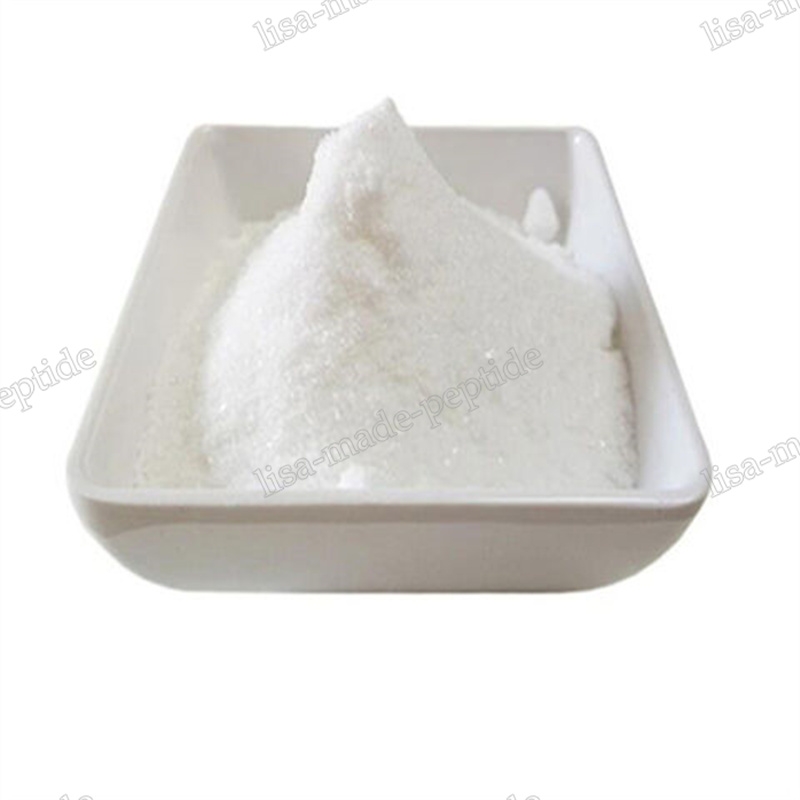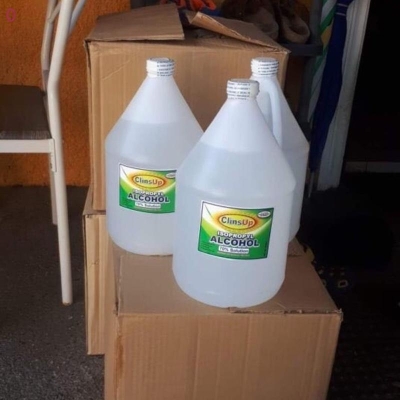-
Categories
-
Pharmaceutical Intermediates
-
Active Pharmaceutical Ingredients
-
Food Additives
- Industrial Coatings
- Agrochemicals
- Dyes and Pigments
- Surfactant
- Flavors and Fragrances
- Chemical Reagents
- Catalyst and Auxiliary
- Natural Products
- Inorganic Chemistry
-
Organic Chemistry
-
Biochemical Engineering
- Analytical Chemistry
-
Cosmetic Ingredient
- Water Treatment Chemical
-
Pharmaceutical Intermediates
Promotion
ECHEMI Mall
Wholesale
Weekly Price
Exhibition
News
-
Trade Service
On February 16, it was learned from the Qingdao Institute of Bioenergy and Processes, Chinese Academy of Sciences that the Catalytic Polymerization and Engineering Research Group led by researcher Wang Qinggang of the Institute has developed a new strategy for upgrading the chemical cycle of polymer degradation and repolymerization.
The method of "to polymer" successfully realized the recycling process of polylactic acid waste to new polylactic acid material
.
The results were recently published in Macromolecules, an authoritative journal in the field of polymers.
Yang Rulin, a doctoral student at the institute, is the first author of the paper
.
Wang Qinggang said that the Chinese title of the published paper is the chemical recycling of polylactic acid waste plastics in a "polymer-to-polymer" method using the "depolymerization and repolymerization" strategy
.
At present, some scientific research achievements such as "a method for the recycling and reuse of polylactic acid materials catalyzed by zinc catalysts" have been applied for invention patents
.
Solve the problem of post-processing of waste polylactic acid materials
"As a polymer material derived from a typical renewable raw material (starch), polylactic acid is gradually developing into a basic bulk material necessary for society, and the post-processing of waste polylactic acid materials has also attracted attention
.
" Wang Qinggang explained that in recent years, , With the continuous improvement of people's awareness of environmental protection and the continuous promotion of the national "plastic ban" and "double carbon" policies, degradable materials have ushered in new development opportunities
.
At the same time, the problem of post-processing of used polylactic acid materials has also attracted people's attention
.
Although polylactic acid can be degraded in nature, this process usually requires a long time and specific degradation conditions, and the degradation products are carbon dioxide and water, which cannot be directly and quickly recycled.
Its degradation is essentially a carbon emission process.
It is also a waste of resources
.
The recycling of polylactic acid is realized by chemical recycling, which provides an effective solution to the post-processing of waste polylactic acid
.
Most of the current research is to convert waste polylactic acid into alkyl lactate, but to obtain high molecular weight polylactic acid material through this process, it is necessary to hydrolyze the alkyl lactate into lactic acid, prepolymerize into oligomer, dimerize into propylene Lactide is then polymerized to obtain polylactic acid, these methods, although feasible, are expensive and inefficient
.
"Therefore, it has important research value and application prospects to directly convert waste polylactic acid materials into new polylactic acid materials
.
" Wang Qinggang said
.
Recycling in a "polymer-to-polymer" approach
With the full implementation of the ban on plastics across the country, polylactic acid materials made from renewable raw starch and various degradable plastic products processed and produced have become the main substitutes for ordinary plastics.
Recycling of material waste
.
It is gratifying that the catalytic polymerization and engineering research group led by Wang Qinggang successfully realized the recycling process of polylactic acid waste to new polylactic acid material in a "polymer-to-polymer" way
.
How to use the "depolymerization and repolymerization" strategy to realize the chemical recycling of polylactic acid waste plastics in a "polymer-to-polymer" way?
The research results of Wang Qinggang's research group show that under the catalysis of the catalyst, the polylactic acid polymer chain is controllably degraded by alcohol into a short-chain polymer, and the molecular weight of the degraded short-chain polymer is regulated by adjusting the amount of alcohol
.
The introduction of alcohol enables the polymer to regain chain-extending activity, and after the addition of lactide monomer, the short-chain polymer is rapidly and accurately repolymerized to the theoretical molecular weight, thereby obtaining a new high molecular weight polylactic acid
.
The reaction conditions of this strategy are mild and the side reactions are few, which reduces the consumption of raw materials for completely reproducing polylactic acid, and maximizes the recycling efficiency of polylactic acid
.
Wang Qinggang said that relatively speaking, most of the existing technologies are to convert polylactic acid waste into alkyl lactate, then hydrolyzed into lactic acid, prepolymerized into oligomers, dimerized into lactide, and finally polymerized to obtain polylactic acid.
Expensive and inefficient
.
Therefore, realizing the direct conversion of waste PLA materials into new PLA materials has considerable application prospects
.
The key to the recycling technology of polylactic acid is that in the repolymerization process, the final materials with different properties can be obtained by adding different types of monomers
.
Wang Qinggang introduced that this achievement provides a new solution for the recycling of polylactic acid
.
The technology is effective in chemical recycling and holds promise in the modification and synthesis of polymers
.
"This strategy has mild reaction conditions and few side reactions, which reduces the consumption of raw materials for completely reproducing polylactic acid, and improves the recycling efficiency of polylactic acid
.
During the repolymerization process, different types of monomers can be added to obtain different properties of The final material
.
This result provides a new solution for the recycling of polylactic acid
.
This strategy is effective in chemical recycling and has development prospects in the modification and synthesis of polymers
.
" Yang Rulin said
.







